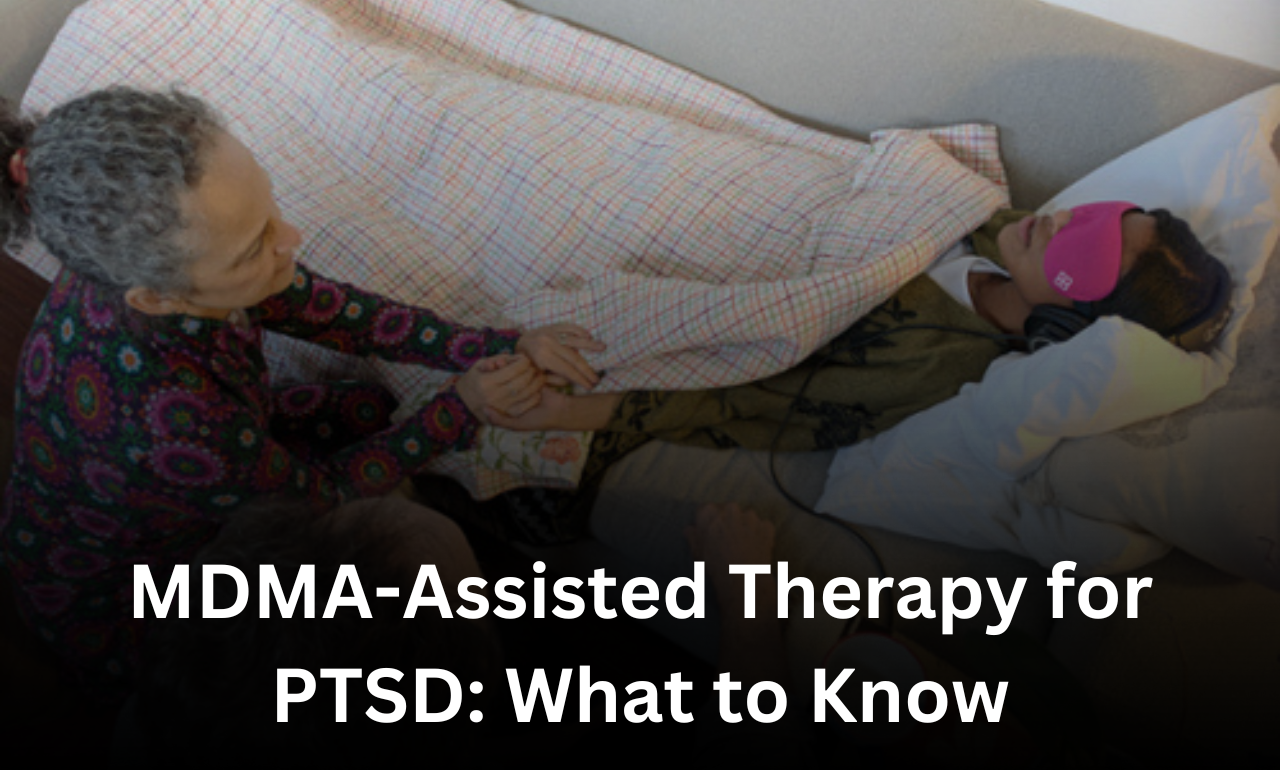MDMA-Assisted Therapy for PTSD: What to Know
PTSD, a life-long illness that leads to severe depression, unstable emotions, and triggering traumatic memories, affecting millions of individuals globally. Beside getting the conventional treatment, many patients still experience the after effects of trauma. In recent years, mdma therapy for ptsd has emerged as a novel and advanced therapeutic approach. As per the clinical trials, MDMA therapy, particularly combining mental therapy with the carefully controlled dosage of MDMA (3,4 methylenedioxymethamphetamine). Knowing the details of this therapeutic approach is essential for both those seeking help and mental health professionals.
MDMA for Therapy: Going Beyond Preconceptions
The term "MDMA therapy" often conjures images of recreational drug use, completely at odds with the reality of this systematic, therapeutic approach. It is crucial to differentiate between MDMA's reckless usage as a street drug and its use as a regulated prescription chemical in research and medicinal settings. Instead of being given in isolation, MDMA is used in counseling as an integrated component of an extensive therapeutic process.
Encourage Emotional Openness: It is believed that MDMA for therapy works therapeutically by causing the brain to release neurotransmitters like serotonin, dopamine, and norepinephrine. Under the supervision of a qualified therapist, this increase in neurochemicals can produce a state that promotes emotional openness and lessens the fear response linked to traumatic memories, enabling patients to address their experiences more successfully without being overtaken by defensive reactions.
Prompts Therapeutic Process: Importantly, MDMA therapy does not control the therapeutic process; rather, it facilitates it; the deeper work being done in therapy sessions is where the healing really occurs, with MDMA serving as a catalyst.
Enhanced Clarity and Safety: The Therapeutic journey is not about escaping; rather, it is about taking control over challenging emotions with increased safety and clarity. MDMA assisted therapy is used as an intervention to overcome emotional challenges.
MDMA Assisted Therapy: Background and Methods
The term "MDMA assisted therapy" clearly explains the procedure, emphasising that psychotherapy—rather than just substance consumption—is at the heart of the treatment. In order to guarantee the patient's safety and advancement, MDMA assisted therapy usually entails a number of sessions in addition to preliminary and integrating sessions.
Preparatory Phase
The course of treatment usually starts with a few preparatory sessions. In this, the patient discusses their traumatic experiences, and establishes reasonable goals for the therapy with the therapist. Before the real MDMA therapy sessions start, these sessions are essential for creating a secure and encouraging environment.
Drug Administration Phase
Two therapists who have received training in providing MDMA-assisted therapy typically keep a close eye on the patient. This is a major phase when they administer the drug during MDMA sessions. Oral administration of the mdma for therapy, the dosage is done after careful measurement. With the therapists offering support and direction, the patient is urged to explore their memories, feelings, and thoughts in a secure and accepting environment during the session. In order to provide a comprehensive therapeutic process, the session typically lasts for a large amount of the day.
Integration Sessions
Integration sessions are crucial after the MDMA therapy session. In order to consolidate progress and incorporate the knowledge acquired into their everyday lives, the patient and therapists collaborate to process the experiences and insights obtained during the mdma therapy for ptsd session.
Recovery Phase
The patient actively participates in their recovery process, and the therapists serve as facilitators throughout the entire procedure, from preparation to integration. What sets MDMA-assisted treatment apart from drug use for recreational purposes is this methodical approach.
Clinical Data and Prospects for MDMA Therapy for PTSD
Clinical trials, especially those aimed at treating PTSD, provide the strongest proof of MDMA therapy's effectiveness. Organisations like the Multidisciplinary Association for Psychedelic Studies (MAPS) have carried out thorough research with encouraging outcomes. Numerous studies have demonstrated that patients receiving MDMA-assisted therapy achieve notable improvements in their PTSD symptoms,as compared to conventional techniques. Benefits in the standard of life, less stress and sadness, and improved social functioning are often linked to these symptom severity reductions.
The results of these research are a result of the drug's and the treatment process's synergistic effects, not only the pharmacological effects of MDMA. The MDMA therapy seems to speed up the course of psychotherapy. It provides an avenue of chance for patients to interact with their painful memories in a more secure and controllable manner. For this reason, studies highlight how crucial highly qualified and experienced therapists are while delivering this kind of treatment.
It is crucial to recognise that MDMA therapy is not a cure-all, even in light of these encouraging outcomes. It has dangers and contraindications, and it is not appropriate for everyone. To find suitable candidates for treatment, stringent screening procedures must be in place, and therapy must always be administered by trained specialists under close medical supervision.
Research and development on mdma assisted therapy is ongoing because of its enormous potential to transform the way PTSD is treated. The therapy methods will probably continue to change as more research is done, resulting in more sophisticated and successful strategies. There is a lot of potential for developing and extending the use of mdma therapy for ptsd in the future.
Conclusion
A possible paradigm shift in mental health treatment is being paved by continuing studies and clinical investigations surrounding MDMA therapy. This gives hope for a more humane and efficient method of addressing the crippling effects of trauma. The evidence to date indicates that this approach has the potential to significantly improve the lives of many people dealing with PTSD along with associated mental health issues, even if even more research is still required.

